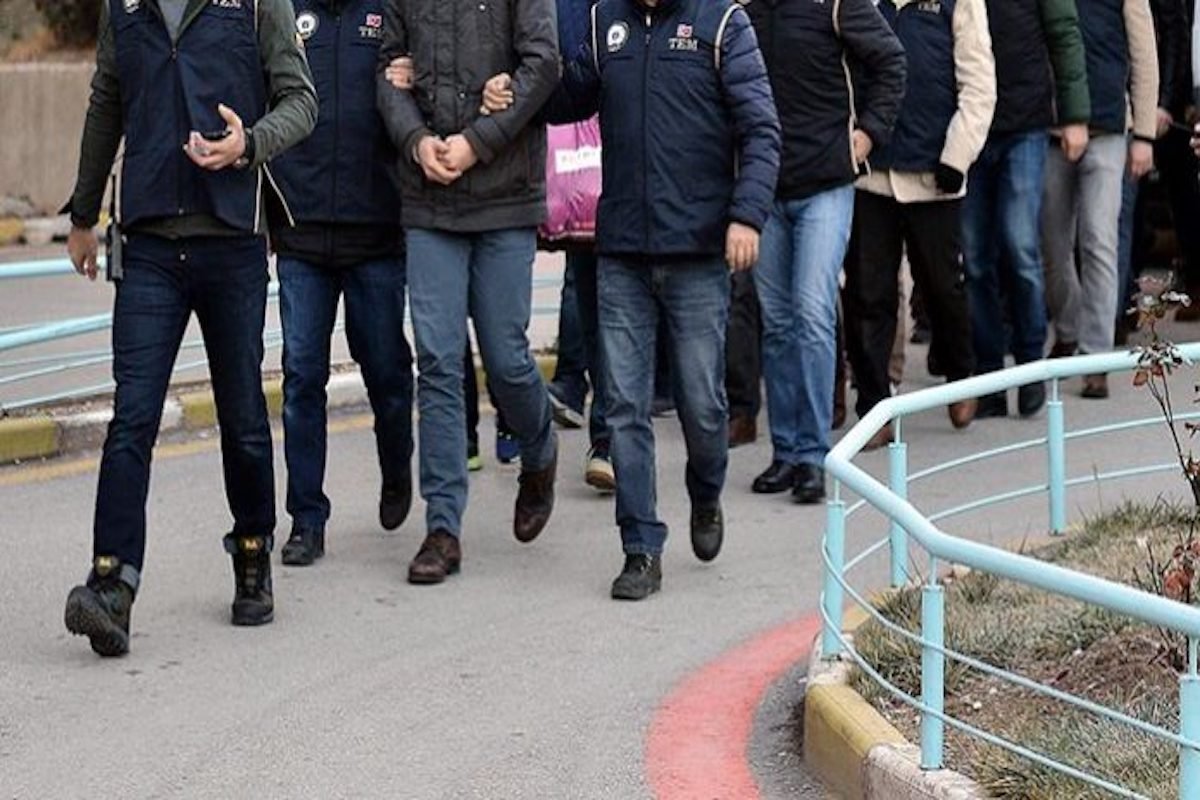Turkish prosecutors have ordered the detention of 99 people due to alleged links to the Gülen movement over the past week, according to reports by Turkish media.
On Tuesday the Ankara Chief Public Prosecutor’s Office issued detention warrants for 47 army cadets. Police conducted operations across 17 provinces to detain the suspects. Thirty of them were reportedly detained. The suspects are accused of communicating with alleged members of the Gülen movement via payphones to avoid detection.
Turkish President Recep Tayyip Erdoğan has been targeting followers of the Gülen movement, inspired by US-based Turkish Muslim cleric Fethullah Gülen, since the corruption investigations of December 17-25, 2013, which implicated then-Prime Minister Erdoğan, his family members, and his inner circle.
Dismissing the investigations as a Gülenist coup and conspiracy against his government, Erdoğan designated the movement as a terrorist organization and began to target its members. He intensified the crackdown on the movement following an abortive putsch on July 15, 2016 that he accused Gülen of masterminding. Gülen and the movement strongly deny involvement in the coup attempt or any terrorist activity.
The so-called “payphone investigations” are based on call records. The prosecutors assume that a member of the Gülen movement used the same payphone to call all his contacts consecutively. Based on that assumption, when an alleged member of the movement is found in call records, it is assumed that other numbers called right before or after that call also belong to people with Gülen links. Receiving calls from a payphone periodically is also considered a red flag.
On Wednesday 29 people were detained following raids in İstanbul as part of an investigation conducted by the İstanbul Chief Public Prosecutor’s Office, which issued warrants for 34 people as part of a probe into alleged members of the Gülen movement. The detainees, who are from a variety of professions, were reportedly in hiding to avoid detention.
On Friday the İstanbul Chief Public Prosecutor’s Office issued detention warrants for 18 people. Police conducted operations across four provinces to detain the suspects, who are accused of accused of using ByLock, an encrypted messaging app used on smartphones and was available on Apple’s App Store and Google Play.
Turkish authorities claim that ByLock was a communication tool exclusively used by members of the Gülen movement, to ensure the privacy of their conversations.
In different opinions, the UN Human Rights Council’s Working Group on Arbitrary Detention (WGAD) stated that arrest and conviction based on ByLock use in Turkey violated Articles 19, 21 and 22 of the International Covenant on Civil and Political Rights.
In one opinion WGAD noted that “no explanation has been provided [by the Turkish government] as to how the alleged use of this application … could be equated with a criminal act.”
According to a statement from Turkish Interior Minister Süleyman Soylu on February 20, a total of 622,646 people have been the subject of investigation and 301,932 have been detained, while 96,000 others have been jailed due to alleged links to the Gülen movement since the failed coup. The minister said there are currently 25,467 people in Turkey’s prisons who were jailed on alleged links to the Gülen movement.
The Turkish government also removed more than 130,000 civil servants, including 4,156 judges and prosecutors, as well as 20,610 members of the armed forces from their jobs on alleged Gülen links following the coup attempt.
In addition to the thousands who were jailed, scores of other Gülen movement followers had to flee Turkey to avoid the government crackdown.















